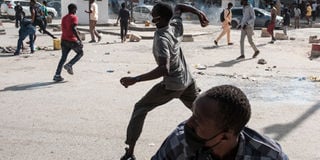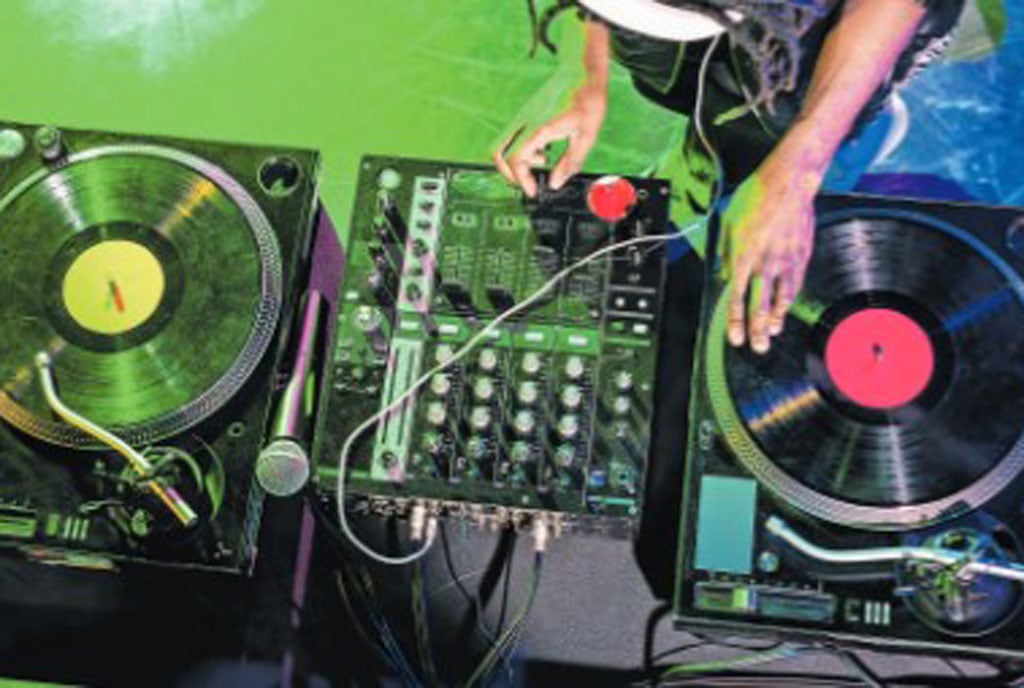Prime
Second protest death deepens Senegal political crisis

A protester throws stones during clashes with police on the sidelines of a protest against a last-minute delay of presidential elections in Dakar on February 9, 2024. On February 8, 2024, the parliament backed the president's sudden decision to postpone the February 25 election by 10 months, sparking a fierce opposition backlash and international concern. Photo | AFP
What you need to know:
- The latest violence has brought fresh condemnation from opposition leaders, some of whom were candidates for the presidency.
Senegal's political crisis deepened as a second person died Saturday in increasingly violent protests against President Macky Sall's decision to postpone upcoming presidential elections.
The latest violence has brought fresh condemnation from opposition leaders, some of whom were candidates for the presidency.
A fresh round of protests is planned for Tuesday.
Market vendor Modou Gueye, 23, died Saturday after having been shot the previous day during clashes in the capital Dakar, two of his relatives told AFP.
"Tear gas grenades were fired and then we went to the train station at Colobane to go home," his brother, Dame Gueye, told AFP.
"It was there that a gendarme shot him in the stomach with a live round."
His brother-in-law Mbagnick Ndiaye said he had succumbed to his injuries Saturday morning.
Already on Friday, a 22-year-old second-year geography student died in the northern town of Saint-Louis, in circumstances that are still not clear.
In Saint-Louis, Alpha Yoro Tounkara died on the campus of Gaston Berger University where he was studying geography. A hundred of his classmates held an all-night vigil for him.
Videos posted to social media suggest other people were also wounded.
The city's prosecutor said it had opened an investigation into the death. The interior ministry issued a statement denying that security forces had been operating on the university campus.
"The international and regional community must bear witness to the excesses of this dying regime," said presidential candidate Khalifa Sall (no relation to the president).
'Journalists targeted': RSF
There has been growing anger since President Sall last weekend postponed the presidential election, which had been scheduled for February 25.
His announcement came hours before official campaigning was due to begin.
Despite growing protests inside the country and expressions of concern abroad, on Monday, deputies in the national assembly voted to put back the election to December.
Protests were held across the country Friday and police made wide use of tear gas to keep crowds away from a main central square in Dakar, also closing main roads, rail lines and major markets.
Reporters Without Borders said at least five journalists had been targeted by police in Dakar.
Campaigners from the Aar Sunu Election group (Protect our Election) have called for fresh protests on Tuesday.
Sall has said he postponed the election because of a dispute between parliament and the Constitutional Council over potential candidates barred from running. He has said he wants to begin a process of "appeasement and reconciliation".
But both the United States and European Union have criticised the postponement.
Senegal's parliament backed the move on Monday only after security forces stormed the chamber and removed some opposition deputies.
Parliament also voted to keep Sall in office until his successor takes office, which is unlikely to be before early 2025. His second term had been due to end April 2.
The crisis has called into question the West African country's reputation for democratic stability in a region beset by military coups.
In Paris and Berlin, groups of protesters, many of them Senegalese, demonstrated Saturday against Sall, denouncing him as a "dictator" and carrying critical placards.
Organisers of the Paris protest said between 2,500 and 3,000 people had turned out. French police put the number at 2,000.
Senegal is a former French colony and many Senegalese live in France.





